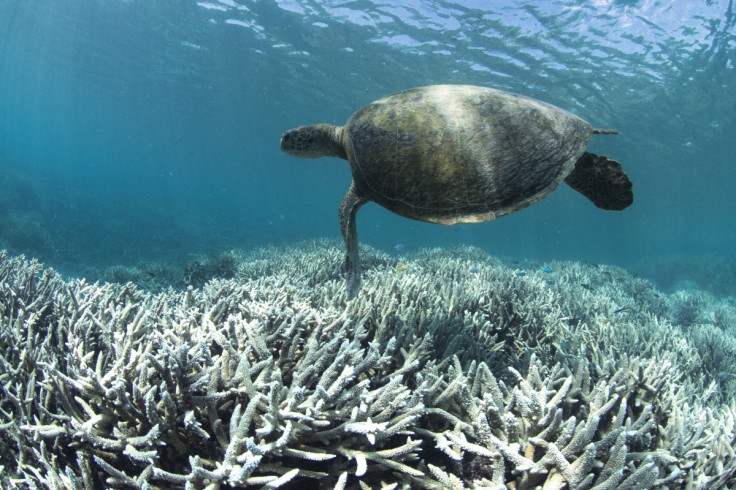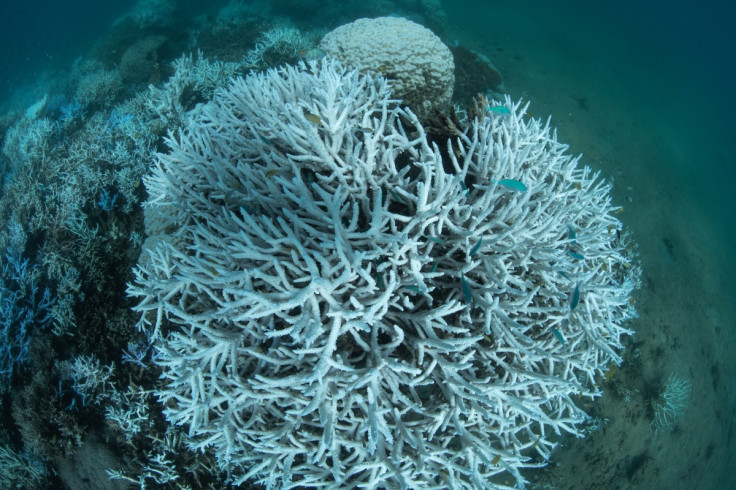Half of northern Great Barrier Reef 'dying due to coral bleaching'

More than half the corals in the northern sections of the Great Barrier Reef are at high risk of dying off, Australian researchers say. Dr Russell Reichelt, chairman of the Great Barrier Reef Marine Park Authority, blamed the projected mortality rate of 50%-60% of the 900 reefs far north of Queensland on "severe bleaching".
Climate change is "by far" the biggest factor behind the latest mass bleaching event, he said. The assessment comes two week safter Australia's National Coral Bleaching Taskforce revealed that only 7% of the world's largest reef system had been left untouched by coral bleaching.
Bleaching occurs when corals are stressed by adverse changes in conditions such as temperature, light or nutrients, which forces them to expel algae living in their tissues. The result is corals gradually losing their colour before turning completely white.
Corals are known to recover from bleaching but if the algae loss is prolonged and the stress continues, they eventually die.
Climate change link
"There's about 900 reefs in [the northern] section, and essentially all of those were severely bleached, above 50 percent — some as high as 90, close to 100 percent bleached," Dr Reichelt was reported as saying to an Australian Senate committee by broadcaster ABC. "And the mortality is likely to be above 50, 60 percent in that area."
He added that while two of the three most recent bleaching events had occurred during an El Nino, anthropogenic global warming continued to be the single biggest driving factor behind them.

The events are "driven by the upward trend in ocean temperatures, which is about 1C [higher] in the past century," he was quoted as saying by the Sydney Morning Herald. "It is very strongly linked to global warming."
Dr Reichelt named water quality as the second biggest threat to the Great Barrier Reef and praised the Australian government's efforts to address the problem as "a terrific national response".
The Queensland state government has put in measures to curb the agricultural run-off of chemicals and sediment into the marine ecosystem as part of its Reef 2050 Long Term Sustainability Plan.
Scientists say coral bleaching is relatively moderate in the central and southern sections of the Great Barrier Reef but a survey completed in April recorded bleaching as far south as Sydney Harbour for the first time.
© Copyright IBTimes 2025. All rights reserved.






















